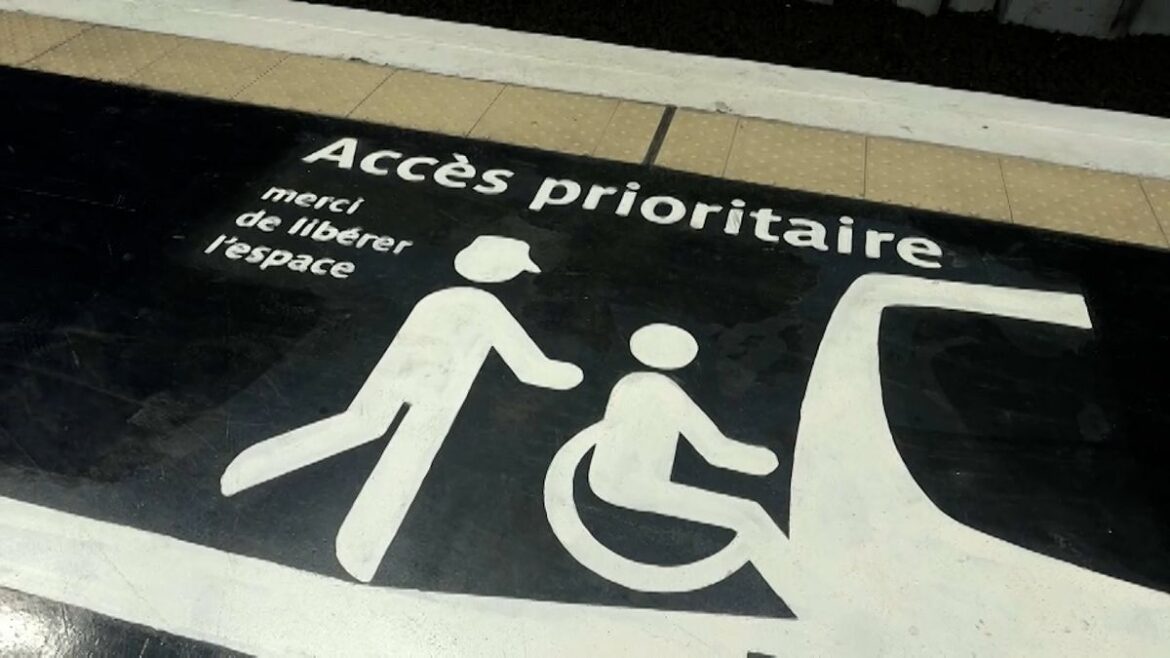Getting around Paris is a real challenge for a person in a wheelchair.
Although the French capital has promised to improve accessibility ahead of the Paralympics, the city’s public transport network remains very difficult to navigate for people with reduced mobility.
We traveled on the RER, with Frank Maille representative of theAPF France handicapan association that fights for the well-being of disabled people in society.
For Frank to get on one of these trains, he has to wait for an agent to accompany him and take out a special ramp.
Often, a person in a wheelchair moving through a metro station is cut off by hurried passengers. Every journey is an ordeal, he says.
“It’s both a physical and psychological fatigue. Physical, because we walk for miles in the corridors, and psychological, because we have to pay attention to everyone, to lots of things. You saw earlier, the crowd, the world, the flow, and all that.” he laments.
In Paris, the metro remains for him the most chaotic means of transport for a person with a motor disability. Inaugurated in 1900, line 1, which crosses the French capital from east to west, is one of the only ones that is fully accessible. But there too, problems arise very quickly as soon as you are in a wheelchair.
Improving accessibility was one of the main promises of the organizers of the Paris Olympic Gamesnicknamed ” Games for all “.
“These are not Games for everyone. said Franck Maille. We are trying to improve, there is a desire to want to do well. But are we doing well? What we need is to ask for advice from the people concerned..”
On the last leg of the bus journey, also advertised as 100% accessible, Franck encounters further problems.
Due to the Olympics, many bus lines have been diverted. Not all bus stops have a ramp, and when they do, Franck always has to ask for help to be pushed up
This journey would take about an hour and a half for a non-disabled person. For Franck, it took more than 3 hours.
Much remains to be done for disabled people on Parisian transport
While Paris has certainly made efforts with the arrival of the Games, Lamia El Aarajedeputy mayor of the capital, responsible for accessibility and people with disabilities, recognizes that more still needs to be done in terms of accessibility.
“We also now have, thanks to the Games, 1,000 taxis that are accessible to people in wheelchairs, and that is a real step forward. However, there is still work to be done, I am thinking in particular of the accessibility of the metro. We have made a major plea with associations of people with disabilities to request that the metro be made partially accessible. We know that total accessibility is almost impossible in a city like Paris, however, I think that we can work intelligently on a good territorial network to also allow this accessibility of the metro..”
Committed people like Franck Maillard hope that these Games will serve as a catalyst for the launch of large-scale work aimed at making life easier for the approximately 12 million people living with a disability in France.



